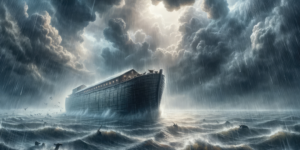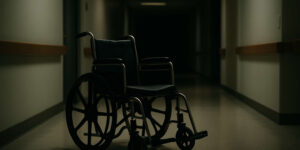Should Christian Parents Allow Their Children to Celebrate Halloween?
In Ireland, where I live, Halloween is second only to Christmas as a popular festival. Here we also call it by the holiday’s original name, the Gaelic word Samhain. Samhain is a major Celtic festival, thought to have originated in Ireland but celebrated throughout the Celtic world since antiquity.
The last day of October was considered to be the end of the harvest and the beginning of winter, the Celtic New Year and a time of celebration and placation of the gods. It was also considered to be a liminal time, when the borders between this world and the spirit world dissolved so that fairies, demons, gods and relatives who had died could travel freely between both.
As has happened with other pagan festivals, in the ninth century, the church tried to Christianize it by changing the date of the feast of All Saints (also known as All Hallows) from May 13 to the first of November. The second of November became the feast of All Souls, a day of remembrance and prayer for deceased relatives. Samhain then became more commonly known in Ireland as Halloween, the eve of All Saints day.
Up until the very recent past, it was hard to distinguish between the pagan and Christian dimensions of the festival period, since Halloween, All Saints and All Souls became inextricably linked with one another. Halloween itself remained a lighthearted day of celebration, greatly enjoyed by both children and adults. Children would dress up as witches, ghosts, skeletons and scary demons to go trick-or-treating when darkness fell. In doing this, they were acting out pagan beliefs in the need to placate evil gods and demons. Afterward, they would go home with the goodies they had been given and enjoy special Halloween food and games, which were associated with divinization. It was believed that on this liminal night, the future could be foretold. In most neighborhoods, bonfires would also be lit, and communities would gather together around them. This practice harks back to the lighting of large fires in pagan times in order to make offerings to the gods.
The next day, Nov. 1, was a holy day of obligation, which meant Mass attendance was obligatory to celebrate the lives of the saints. On the following day, the feast of All Souls, it was customary to go to church and perform prayer rituals, which, we were told, would secure release for deceased relatives who were in purgatory, a place of spiritual purification between this world and heaven. The feast of All Souls also resonated with the traditional Samhain belief in the ability of the deceased to cross over from the spiritual world and make contact with their relatives.
In the 19th century Halloween became a popular festival in the U.S. due to the mass migration of Irish and Scottish people. In the 20th century, Americans made their own particular contribution to the festival with commercially successful horror films and the use of the term “trick-or-treating“ to describe the activities of children going from house to house.
This commercialization, along with the secularization of Irish society, brought about by EU membership and a backlash against the church due to the child abuse scandals, led in Ireland to an almost total elimination of the Christian dimension of Halloween. Attendance at church on All Hallows or All Souls is rare, and most Irish people would now consider the idea of souls being released from purgatory to be every bit as superstitious as the pagan beliefs of Halloween. In Ireland it has reverted to a mainly pagan festival again, and is celebrated with great gusto.
So what, it may be asked, are the implications for practicing Christian parents who worry about the loss of the Christian spiritual dimension?
First of all, it can be argued that in this age dominated by growing secularization and atheism, largely fueled by the predominance of scientific achievements and methodology, a festival that acknowledges the spiritual domain and adds a sense of mystery to life has to be a good thing.
Christian parents worried about the pagan element could perhaps point out to their children that we are, and always have been, a religious species, and that Halloween is a reminder of how people in earlier eras practiced it. They could add that Christianity is the fulfillment of all religion, and also bring their children to church on one of the following days to emphasize that Christianity is the only way that leads to salvation. {eoa}
Dr. Niamh M. Middleton is a lecturer in moral and systematic theology at Dublin City University and is a leading authority in the study of human origins. Her new book, Homo Lapsus: Sin, Evolution, and the God who is Love, is described as a scholarly but accessible reconciliation of evolutionary thinking with Christian belief. Dr. Middleton lives in a suburb of Dublin, Ireland, and is married to her teenage sweetheart.
Read articles like this one and other Spirit-led content in our new platform, CHARISMA PLUS.







































